From SEO to REO

Published July 18, 2024 (7:05 PM) • Updated July 20, 2024 (4:31 PM)
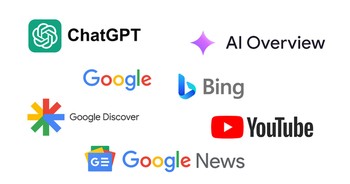
Overview of a couple search and recommendation engines
We all know about search engine optimization (SEO) by now. However, the term "REO" still raises a lot of eyebrows, even though it is more relevant than ever.
Why? Because Google is no longer the only place where you can attract potential customers to your website and content.
What is REO?
REO stands for Recommendation Engine Optimization and encapsulates optimizing your website to align with algorithms of all sorts of recommendation engines, like Google Discover, YouTube and ChatGPT.
While SEO specifically aims at optimizing for search engines (what's in a name), REO broadens the playing field, allowing your website to be noticed by both active searchers and more passive users.
Broadly speaking, websites and apps such as Netflix, Spotify and Amazon are also considered "recommendation engines". The scope of this article is limited to recommendation engines in the context of website and content optimization.
Google Discover
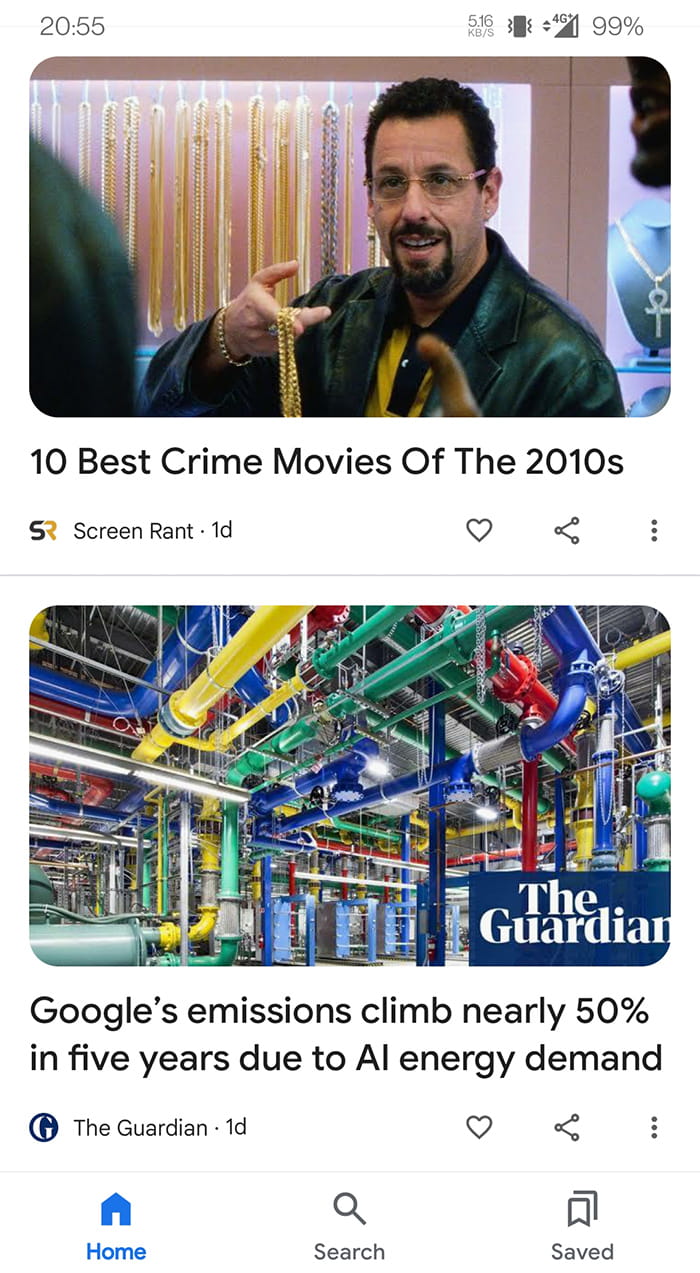
Google Discover is often mentioned in the same breath as SEO, but this isn't really correct.
Discover is not a search engine, but a recommendation engine that pushes content in the Google Discover app based on a multitude of factors (like your personal interests).
Primarily, sites that frequently publish news (or evergreen articles) stand to gain from Google Discover optimization. Think sites like The New York Times, TechRadar and Tom's Hardware.
When done correctly, REO for Google Discover (and Google News) can result in a massive increase in organic traffic.
YouTube
YouTube is part of the SEO and REO world.
On one hand, we have optimizations for improving your visibility in YouTube's search functionality (= SEO). On the other hand, there are also optimizations for enhancing visibility in:
- The YouTube Home feed
- The "watch next" sidebar
- Thumbnails that show up after playing a video
AI Overviews
AI Overviews (AIO) are Google's response to the ChatGPT hype.
When shown, they are a big part at the top of the Search Engine Result Pages (SERPs) and generate answers based on multiple online sources.
Many factors that have been known to be used in SEO are suddenly also relevant for REO, ensuring your website and content can be used as a source reference in AI Overviews.
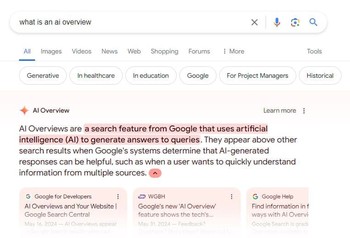
AI Overview example clearly showing the website sources (July 2024)
ChatGPT
ChatGPT can be described in many ways: a smart chatbot, a virtual assistant, an answer engine, and also a recommendation engine.
When you ask ChatGPT a question, it will (depending on the type of question) provide you with one answer or multiple options.
The Large Language Model (LLM) technology generates answers based on the information it was trained on. This dataset contains millions of publicly available documents on the internet, of which your website can be a part of.
Unfortunately, ChatGPT doesn't always refer to the sources it got its information from, while Google's AI Overviews generally do provide clear citations.
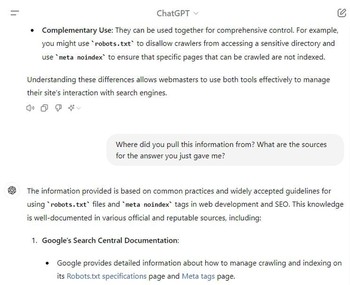
ChatGPT in this example didn't cite its sources until I specifically asked it to
Ethical considerations: if you don't agree to LLMs like ChatGPT scanning and rewriting your content, often without referring back to your site - some simply call it theft - you can block these tools by using a robots.txt instruction.
Microsoft Copilot
Copilot is the result of a partnership between Microsoft and OpenAI (the company behind ChatGPT).
This partnership brought the LLM technology to the Bing search engine.
Depending on the type of search query, Copilot can often occupy a very prominent place in Bing's Search Engine Result Pages.
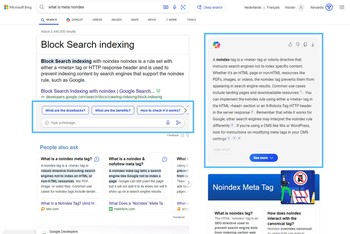
Copilot in the Bing search engine, marked in blue (screenshot from July 2024)
The citations in Copilot are a bit more subtle than those in Google's AI Overviews, but at least Copilot does cite its sources.
Keep in mind that Bing, as a search engine, still has a limited market share:
- USA: Google at 88% market share, Bing at 7%
- Europe: Google at 91% market share, Bing at 4%
- Belgium only: Google at 91% market share, Bing at 7%
(source: Statcounter Desktop, Mobile & Tablet Search Engine Market Share USA, Europe, Belgium June 2023 to June 2024)
SEO is dead, long live REO?
SEO definitely isn't dead, but if you want to ensure your website and content is as visibile as it can possibly be, you'll have to start looking beyond just Google Search.
Through Recommendation Engine Optimization, you can optimize your content so it can be discovered and used in as many places as possible, without limiting yourself to one specific tool or search engine.
In the end, that's all we want: for our content to be found.
Whether that's via Google, Bing, ChatGPT, X, Reddit, Google Discover, or even TikTok, that really doesn't matter.
